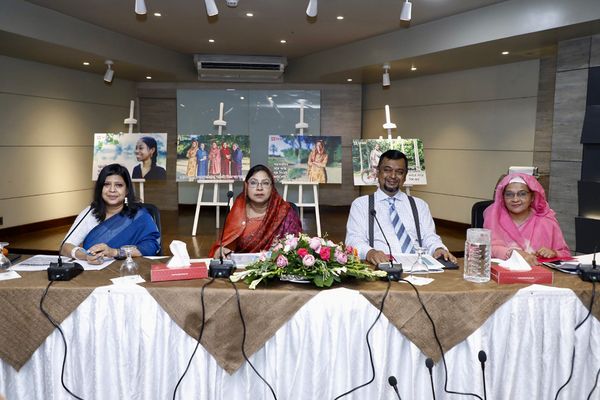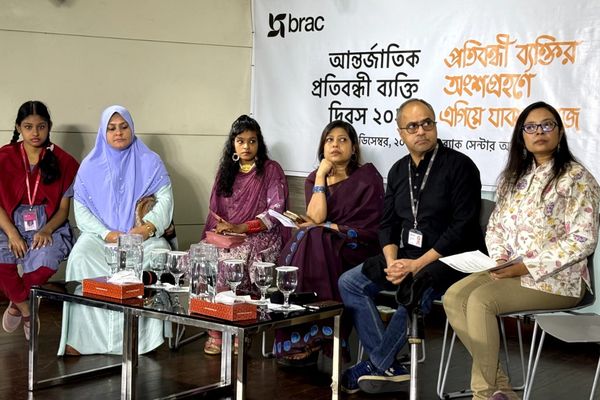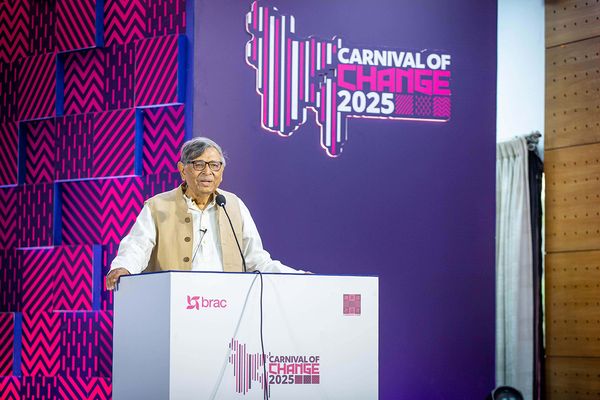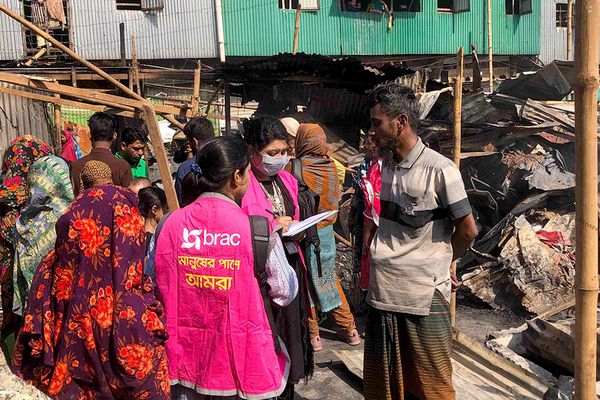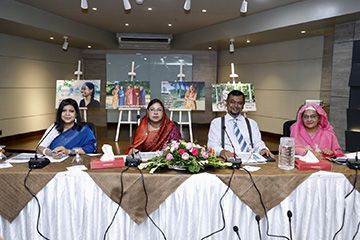
A recent study conducted by BRAC has uncovered a concerning trend -- over 60 per cent of families in Bangladesh are practicing child marriage. This means that more than 60 per cent of girls who were married off or brought into these families as daughters-in-law within the last 5 years were under 18 years of age at the time of their marriage.
The findings were presented at a round table discussion at the BRAC Centre in the capital, titled, 'Child Marriage: Trends and Causes' today (Thursday, 5 October). Shashwatee Biplob, Programme Head and In-charge, Social Empowerment and Legal Protection Programme presented the findings of the study titled ‘Born to be a Bride, Child Marriage: Trends and Causes’.
BRAC's Social Empowerment and Legal Protection (SELP) Programme conducted this extensive household survey in 27 districts, encompassing approximately 50,000 households, to uncover the causes and trends related to child marriage. The survey revealed that within these districts, 44.7 per cent of girls experience child marriage before reaching the age of 18. Notably, Pirojpur district has the highest incidence of child marriage, with a staggering rate of 72.6 per cent, while Netrakona records the lowest rate at 24.1 per cent.
The study also found that 6.9 per cent of girls who fall victim of child marriage are even below 15 years of age.
Following Pirojpur (72.6 per cent), the districts with the highest rates of child marriage include Chapainawabganj (65.2 per cent), Naogaon (65 per cent), Thakurgaon (62.5 per cent), and Jaipurhat (61.4 per cent).
Among girls who experienced child marriage, 56 per cent were forced to marry before completing secondary education. A significant 44 per cent of parents made the decision in the pursuit of finding suitable husbands for their daughters. Additionally, 18 per cent cited economic hardship, 10 per cent attributed it to low or no dowry requirements, 7 per cent mentioned the lack of social security, 6 per cent linked it to education challenges, and 15 per cent attributed it to other factors.
The study gathered data using a non-probability purposive sampling method and semi-structured interviews.
The chief guest of the event, Begum Meher Afroze, MP, Honourable Chairperson of the Parliamentary Standing Committee for Women and Children Affairs, emphasised the importance of addressing child marriage in Bangladesh. Referring to grooms who marry young girls as 'viruses', she said, their identity should be revealed to the public. Sharing such news in media will bring social shame upon them. It's not solely the responsibility of the girls or their guardians; it's also crucial to educate the men who seek to marry underage girls. Conducting research to understand the reasons behind men marrying young girls is also of great importantce. Until parents begin to take pride in their daughter's identities and actively work to change their attitudes and mindset, this issue will persist.
Special guest, Ayesha Siddiqa, Deputy Director, Directorate of Women Affairs, highlighted that child marriage remains the primary obstacle to achieving the Sustainable Development Goals (SDGs). She pointed out the government's efforts in combating child marriage and emphasised that there is no substitute for raising public awareness about this critical issue through social and behaviour change communications (SBCC).
KAM Morshed, Senior Director, BRAC, said, "Child marriage will only decline when the demand for it diminishes. In our upcoming action strategies, the primary objective will be to identify and address the underlying causes of child marriage. By enhancing the self-esteem and life skills of adolescent girls at the community level, we can effectively combat child marriage, fostering a sense of hope and optimism."
The event was attended by representatives from bilateral and UN agencies, various national and international NGOs, and members of the media.
BRAC's Social Empowerment and Legal Protection (SELP) Programme has launched a comprehensive initiative to prevent child marriage. As part of this effort, SELP has developed a village-based platform named "Swapnosarothi" to support adolescent girls at risk of child marriage.
Click here for download the report.
